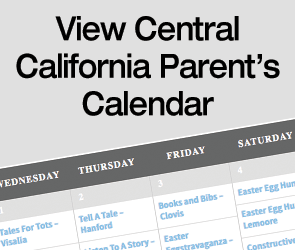Warming your Kids up to Poetry
By Heather Lee Leap
Poetry suffers an undeserved reputation as something cool and standoffish, but that may be because poems are so often left to lie flat and lifeless upon the page. This April, in celebration of National Poetry Month, brush off the ashes and find the glow in poetry. Giving breath to poems, like blowing on fading embers, will light a fire in children and adults as they discover the magic and art of words. Share them, read them aloud and poems come to life.
Established in the United States in 1996 by the Academy of American Poets and in Canada in 1999 by the League of Canadian Poets, National Poetry Month is a month-long celebration of poetry and its vital place in our culture. Whether you are a life-long poetry fan or giving poetry another chance for the sake of your children, let the following ideas inspire you and your family to explore poetry this month and throughout the year.
Choose a Poem of the Day
Have family members take turns choosing a poem to share at breakfast, at dinner or at any time you can all be together. Sixth grade students at a K-12 charter school hear a new poem each day in the classroom and use journals to capture their impressions. Teacher Ned Hascall encourages students to respond to the poems and make connections. “Don’t beat the poetry with a rubber hose,” he advises. Exposure to the art of poetry can be enough. “Let it be,” he says. “Let a few words attach to the children, let them walk away with them stuck to their clothes.” When introducing poetry to children at home consider the rhythm, cadence and emotion in a poem rather than pushing them to search for meaning.
Offer poetry as a snack
Copy a short poem onto a slip of paper and tuck it into your child’s lunchbox as a surprise.
Celebrate “Poem in Your Pocket Day”
On Thursday April 24th, select a poem, carry it with you and share it with others throughout the day.
Read poetry and sing songs to babies and toddlers
Little ones will build language skills, absorbing rhymes and the rhythms of music and poetry, long before they comprehend the content.
Write your own poems
Try a progressive poem where each person begins a poem, then passes the paper to the next person to add a line. Read through various types of poems and see if you can mimic a particular style.
Read poetry
Begin a children’s book club by reading a book of poetry. Choose a volume and ask the kids to take notes or use sticky notes to mark and then share the poems they liked best from the selection. Encourage them to read their favorites aloud to the group. Discuss your varying interpretations of the poems and what thoughts or feelings they evoke; model respectful responses when sharing opinions with peers.
Volunteer to lead a poetry group at your child’s school or homeschooling group. Read poems aloud and choose poems to memorize. Include time to write poetry and share your creations.
Visit your public library
A great source for local activities, look for announcements of upcoming poetry events. Ask a children’s librarian for recommendations and bring home an armload of poetry books to peruse.
Memorize and recite poetry
In addition to hearing and responding to poetry, Hascall’s sixth grade students memorize nine poems during the school year, one each month. “Poetry is a doorway to art,” says Hascall who began having children memorize poems so they could experience art and “feel beautiful words in their mouths.” Students build stamina and determination, eventually memorizing poems with as many as fifteen verses. “There is power in their achievement,” says Hascall. “The children are always amazed and proud of their accomplishments.” Students can practice in pairs, reciting aloud and prompting each other to aid in memorization. Patrice Vecchione, editor of Whisper and Shout: Poems to Memorize, suggests creating visualizations to make associations between images in a poem and something you already know.
Find an audience and set a goal
Memorizing with the intent to perform at a specific time and place establishes a deadline and purpose and can provide momentum and boost enthusiasm for the challenge of learning a piece by heart. Invite friends to a poetry slam at your home, and perform your own work, or recite favorite poems by others.
Prepare a poem to recite for grandparents, perform a poem at a senior center or register for a public event.
Stand up as you read or recite; move to the cadence of the text. Poetry as performance art comes to life, rises from the page and can kindle a new interest in children, or simple light their way to the next discovery.
Poetry Resources for Families
The Academy of American Poets, website: poets.ca/
The League of Canadian Poets, website: www.poets.org/
• A Child’s Garden of Songs, and Back to the Garden, the Poetry of Robert Louis Stevenson in Song, recording by Ted Jacobs
• A Journey through Time in Verse and Rhyme, edited by Heather Thomas
• My Uncle Emily, by Jane Yolen
• Poem in your Pocket for Young Poets, selected by Bruno Navasky
• Poems to Learn by Heart, edited by Caroline Kennedy
• Read-Aloud Rhymes for the Very Young, selected by Jack Prelutsky
• Read a Rhyme, Write a Rhyme, selected by Jack Prelutsky
• Where the Sidewalk Ends, by Shel Silverstein
• Whisper and Shout: Poems to Memorize, edited by Patrice Vecchione
Central California Parent is the #1 FREE parenting resource for Central Valley families.
Stay connected with Central California Parent throughout the month!
• Like Us on Facebook
• Subscribe For our Family E-Newsletter
• Read Our Digital Edition
• Enter for our FREE Giveaways





